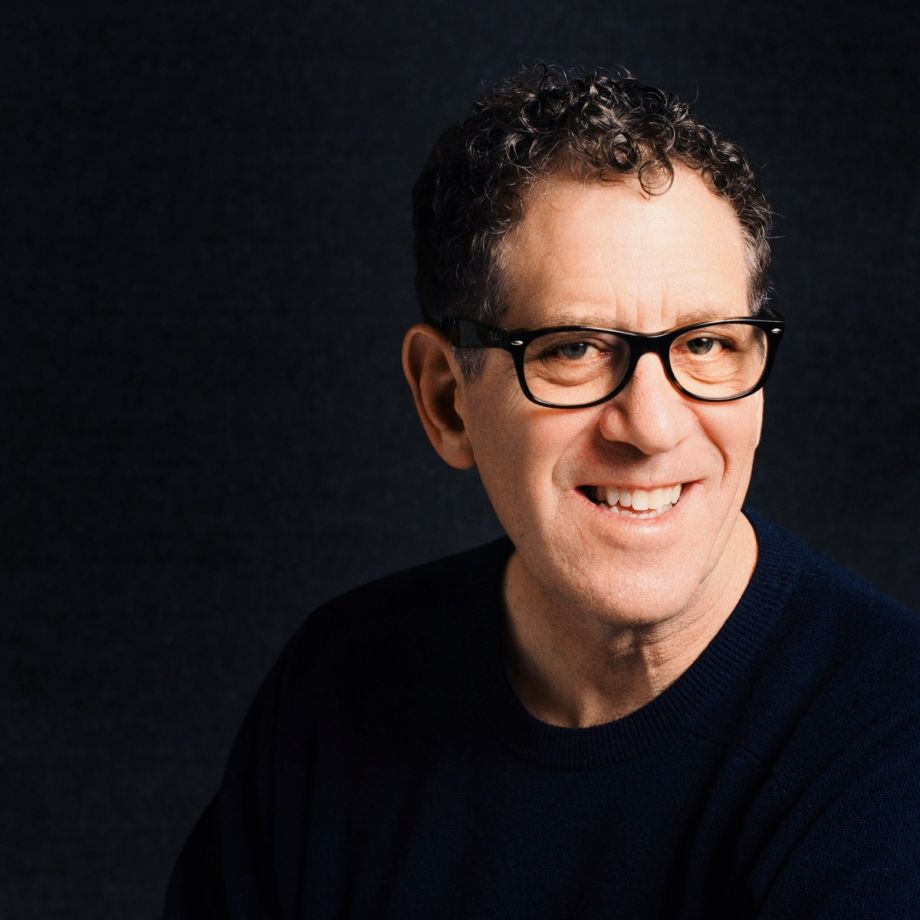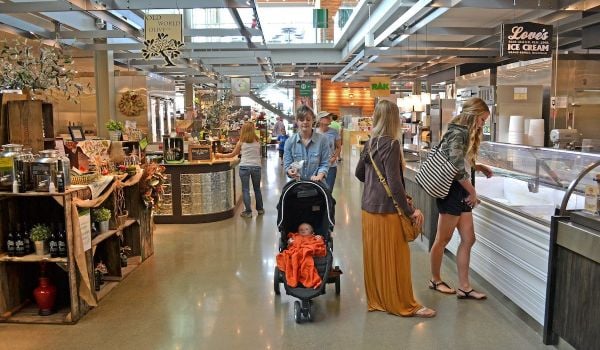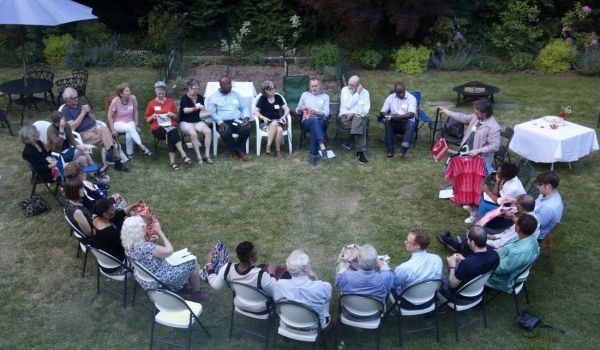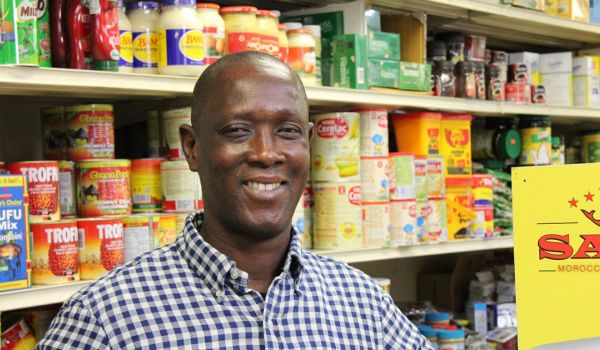When funders invest in locally sourced food, they’re also investing in public health, the environment and economically disadvantaged communities. That’s one of the reasons Steve Saltzman says supporting locally run food systems “may be some of the most important work CDFIs can do today.”
Saltzman is the CEO of the New Hampshire Community Loan Fund, a CDFI that has supported 39 local farm and food businesses in loans totaling $14.4 million over the past decade. He has spent 16 years working at CDFIs and sitting on the boards of food justice organizations.
Saltzman spoke with us about how providing capital for small farms, restaurants and grocers can build generational wealth and community autonomy.
What impact does funding small, local food businesses have on food systems?
Investment in local food has a micro-impact on placemaking. How do you create generational wealth and a local food shed so that there is healthy food? How do you create a micro-economy where money circulates within the community rather than being extracted by a corporation? The macro-impact is that we create an alternative to this inefficient, heavily subsidized industrial food system where the population and taxpayers pay a significant penalty for food that’s making us unhealthier.
What is the connection between food and placemaking?
People use food to create environments that are culturally relevant and build community ownership. In North Charleston, South Carolina, the neighborhood in the United States that has the highest eviction rates in the country, there’s a nonprofit called Fresh Future Farm which is basically run by a collective of Black working-class community members who built both a farm and a grocery store (editor’s note: Saltzman serves on the board as treasurer). Their theory is based on the concept of transformative justice. There isn’t any irrigation because they farm like our ancestors have for centuries and use sustainable farming practices and the food there reflects local community needs. The farm is much more than a grocery store. It’s a community center.
Why should investing in local food businesses be a priority for funders?
Investing in local food captures an intersectionality of issues. You’re able to impact the issues you care about upstream. A food pantry is a downstream strategy to help someone who may be experiencing unemployment. Investing in local food businesses can not only create opportunities for safe, healthy employment where wages can be sustainable, but it’s creating the local opportunity for food.
How would you like to see support for the local food system grow, and what will it take to get there?
If we want our food system work to be justice work, there needs to be recognition about who has suffered the brunt of externalities from our corporate food system: That tends to be low-wealth people of color. CDFIs need to examine their own underwriting and have a reparations strategy. Can CDFIs look at impact and not be as focused on big dollars and splashy loans as doing some of the slow, patient work to build a collective of African American and Latinx food entrepreneurs who own businesses, real estate, and are going to create multi-generational wealth?
When we make a loan to an entrepreneur, it’s the beginning of the relationship, not the end. We assume we’re going to be working with these borrowers in partnership. If we want local food businesses, especially those owned by new Americans and other people we might consider to be economically disenfranchised, we need to go beyond having a transaction-based relationship with our borrowers.
How have you seen a robust, small-business-run, local food systems contribute to food justice?
Some of the most dynamic work I’ve seen has been by the Inner-City Muslim Action Network. Their program helps not just create better access to fresh and healthy food on the south side of Chicago, they also help stabilize an entire neighborhood that has been vulnerable to the externalities you see from decades of disinvestment.
One of the challenges for local farms in New Hampshire that rely on animal agriculture is that there aren’t enough processors (slaughtering houses) available. That means that these local farms have to sell their cows or pigs to the commercial livestock markets where the prices are lower. There’s no benefit for the farmers to farm in the ways that sequester carbon, that protect the earth, that prevent desiccation. For us, by supporting processors, it’s going to allow local farmers to capture the surplus-value of sustainable farming practices. They’re going to have enough wealth to hold onto their farms.
This story is part of our series, CDFI Futures, which explores the community development finance industry through the lenses of equity, public policy and inclusive community development. The series is generously supported by Partners for the Common Good. Sign up for PCG’s CapNexus newsletter at capnexus.org.
Kate is a Seattle-based writer who has written about education, climate change, foster care and food justice. Her bylines have appeared in YES! Magazine, The Atlantic, The 74 and a handful of Pacific Northwest community newspapers.




_600_350_80_s_c1.jpg)











